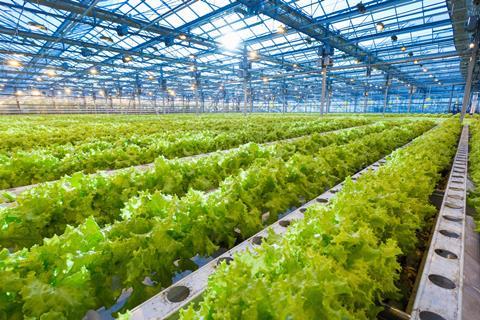Rocketing energy prices have prompted the European fresh produce association to call for action to mitigate the “far-reaching” impact on the fruit and vegetables sector
Supplies of fresh produce may diminish as European growers suffer the effects of both the energy and climate crises, Freshfel Europe has warned.
“The supply of fresh produce may decrease as growers go out of business, or leave products unharvested as they cannot store them,” cautioned general delegate Philippe Binard. “Production in glasshouses may be shortened to limit heating or lighting. Furthermore, lack of proper temperature control puts plants at risk of going dormant, decreasing harvest yields. All of this might impact a supply which is additionally increasingly impacted by climate change.”
The high price of electricity and gas, plus rising prices of production inputs, services and logistics, are putting fresh produce businesses at risk of serious economic hardship, even bankruptcy, Freshfel Europe warned.
Small margins mean that the supply chain is unable to continue to absorb such cost increases, it argued, listing multiple purposes for energy needs throughout the supply chain.
“Outdoor production requires electricity for proper irrigation, indoor production requires temperature management and appropriate lighting,” Freshfel Europe stated. “Packing and storage facilities need to have certain levels of cooling and temperature-controlled atmosphere, as do ripening facilities. Logistics and transportation require energy as well. Equally, distribution centres and retailers need to ensure fitting conditions to provide consumers with fresh and safe products.”

Freshfel warned of the huge effect on competitiveness. “In this energy crunch, fresh produce operators face different contractual conditions, and their energy dependency might vary,” it stated. “To this end, they are operating in an unlevel playing field among the different national energy markets in the EU. Some fresh produce operators are facing electricity bills up to ten times higher than the previous year.”
“Essential” sector “at risk”
The decline in consumer purchasing power, also a result of higher energy bills, has already cut fresh produce consumption by 10 per cent in recent months, Freshfel noted. “This is further exacerbating profitability challenges of the fresh produce sector,” it explained. “Economic hardship or even bankruptcy of operators is likely if remedies are not found rapidly.”
Binard said that additional energy costs were estimated at €6.8bn for the current season, from the orchard up to the product’s departure from the packhouse.
“Besides this, each product category might also have additional energy costs in the chain,” he added. “For example, should apple storage trends remain unchanged, we have calculated that such added bills could be close to €200m for the coming season.”
These costs come on top of the €10bn that Freshfel Europe estimates the sector suffered in added costs over the last year.
“Retail prices of other food sectors have recently inflated by 15-20 per cent, passing these added costs to consumers,” Binard said. “Such a transfer has not been reflected yet in fruit and vegetable prices to final consumers. While fresh produce remains one of the most affordable and nutritious among the different food categories, its position is now at risk.”
He described the scenario as “alarming” given the “essential role of fruit and vegetables, part of the solution in reaching EU sustainability targets in the European Green Deal, Farm to Fork Strategy and Fit for 55 Package, and securing the better health objective of the EU Beating Cancer Plan”.
Freshfel Europe equally warned of the risk to product freshness, quality and safety without proper temperature-controlled storage, in addition to a likely increase in food waste.
“Our sector needs to be classified as an essential sector and be excluded from any potential energy cuts,” urged Binard. “This will ensure its ability to perform its essential function in the delivery of quality and safe fresh produce to consumers.”



